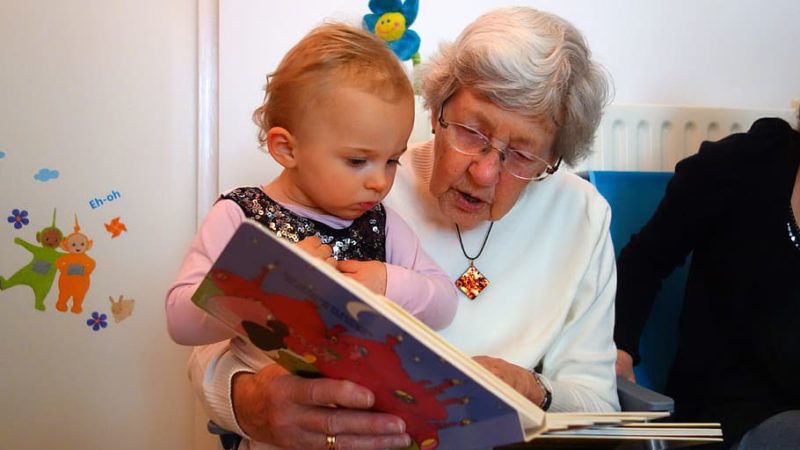Shabana Mahmood Member of Parliament for Birmingham Ladywood

Shabana has written to the First Secretary of State, Dominic Raab MP, regarding multigenerational families in light of the Covid-19 pandemic.
In her letter, Shabana highlights that Birmingham, Ladywood has a high proportion of families, predominantly of south-Asian descent, who live with elderly relatives in sometimes particularly overcrowded conditions.
She raises fears that when twinned with the increased impact COVID-19 has had on black, Asian, and minority ethnic communities, these communities may have been put at an increased risk of infection early on in the pandemic.
Shabana presses the urgent need to consider how the potential methods of easing restrictions must only be done with clear consideration of the impact this could have on multigenerational households.
Read her letter in full below.
Letter to the First Secretary of State
Dear Secretary of State,
COVID-19: Multigenerational households
The COVID-19 pandemic poses major public health and economic challenges for everyone across our country and I do not underestimate the complexity of responding to this crisis within government. As our country enters the fourth week of lockdown, many of my constituents and the wider public are becoming increasingly anxious as to what any relaxing of the current restrictions on social contact will look like.
I recognise that our economy and our day-to-day lives cannot simply return to normal once we are confident that we have passed the peak rate of infection. The current best estimate of the proportion of people infected with COVID-19 and who therefore may soon have a level of immunity stands at around 4 per cent. This leaves up to 63 million people across our country who remain vulnerable to infection. As you will understand, the means through which we begin to ease the lockdown and restart our economy therefore form a crucial part of our medium-term fight against this pandemic. While there are many factors to consider when formulating an exit strategy, I would like to underline the urgent need to consider different types of household living situations alongside important overarching factors such as testing and contact tracing.
Data from the Cambridge Centre for Housing and Planning Research suggests that there are currently around 1.8 million multigenerational households in Britain. With many families now living with elderly parents or grandparents and with a significant number returning to live together later in life, there are now numerous households with wide age spectrums. As you will understand, this means that many economically active individuals are living at close proximity with their elderly relatives, many of whom will have a heightened risk to their personal health if they contract COVID-19.
My Birmingham Ladywood constituency for instance has a high proportion of families, predominantly of south-Asian descent, who live with elderly relatives in sometimes particularly overcrowded conditions. This type of household may not be typical for every part of our country but when twinned with the disproportionate impact COVID-19 has had on black, Asian, and minority ethnic communities, I fear that these communities may have been put at an increased risk of infection early on in the pandemic.
When we consider the high population density we have in places like my constituency, this trend becomes even more alarming. Recent analysis by the New Policy Institute shows that even after allowing for the much higher infection rates in London, the top five most crowded areas in the country have seen 70 per cent more COVID-19 cases than the five least crowded. In total, 9 per cent of homes in Birmingham are considered to be overcrowded – the second highest rate in the UK, behind only London.
The situation I have outlined particularly affects my Birmingham Ladywood constituency but it is by no means exclusive to the West Midlands. I am sure that you will agree that there is an urgent need to take such living situations into account when planning the next stage of the government’s response to this pandemic.
When the lockdown measures were first put into place, it appeared as if there had been little to no thought about what these restrictions would mean for multigenerational households and the heightened risk it could expose people to. While I understand that the government had to act quickly on the latest public health advice, I am remain deeply concerned that these measures could have exposed some people, particularly from BAME communities, to an increased risk of the threat posed by COVID-19. I would therefore like to impress upon the government the urgent need to consider how the many potential methods of easing restrictions, even in a graduated sense, must only be deployed with clear consideration of the impact this could have on multigenerational households. We simply cannot – and must not – risk putting parts of our communities at a significantly increased risk of contracting COVID-19 through allowing too many restrictions to be lifted arbitrarily.
I would like to reiterate that I do not underestimate the scale of the challenge ahead of the government and I have sought to work constructively with ministers since this pandemic began. As we move forwards into the next phase of responding to this public health emergency however, we must ensure that we do not act without taking stock of the different risks faced by the many different communities living across our country.
Thank you for taking this into consideration – I look forward to hearing from you.
Yours sincerely,
Shabana Mahmood MP
Member of Parliament for Birmingham, Ladywood
